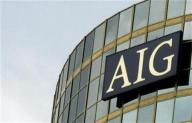
NEW YORK (Reuters) – Shares of American International Group fell more than 50 percent in early trading on reports that the insurer had turned to the Federal Reserve for $40 billion in bridge financing to ward off a liquidity crisis and ratings downgrades.
AIG shares dropped 52 percent to $5.82 on the New York Stock Exchange before recouping a bit to $7.41. The shares have fallen 80 percent this year and closed Friday at $12.14.
The up-front cost of insuring $10 million of AIG debt for five years jumped to $3.05 million from $1.3 million on Friday, in addition to annual payments of $500,000, according to Markit Intraday.
Over the weekend, AIG executives and New York state insurance regulators scrambled to find a way to boost AIG’s liquidity.
It was not clear early on Monday if and when a plan would be agreed on. A company spokesman did not immediately return a call seeking comment.
The insurer, which has incurred $18 billion in losses over the past three quarters from guarantees it wrote on mortgage derivatives, was hit on Friday by Standard & Poor’s putting the company’s credit ratings on negative watch, indicating a possible downgrade.
PRISONER’S DILEMMA
Several analysts, in research reports on Monday, said the company was likely to be vastly changed after a much-anticipated restructuring. AIG said it has been considering “a wide range of options,” including selling off valuable assets.
“At the end of the day, it’s a real prisoner’s dilemma,” Wachovia analysts wrote in a research note. “Capital options are plenty, but unfortunately AIG will have to likely cut into bone and sell good assets that are earning good returns to support the collateral needs of bad assets earning nothing.
“We don’t see how AIG gets through the most recent concerns without raising capital.”
AIG, until recently the world’s largest insurer, does business in 130 countries and territories around the world, selling insurance to 74 million customers worldwide.
It also has an aircraft leasing arm, an asset management business, and a financial products unit. The latter holds a credit default swap portfolio that has triggered the large mortgage losses.
(Reporting by Lilla Zuill, additional reporting by Karen Brettell; Editing by John Wallace)
Mon Sep 15, 2008 10:22am EDT
Source: Reuters